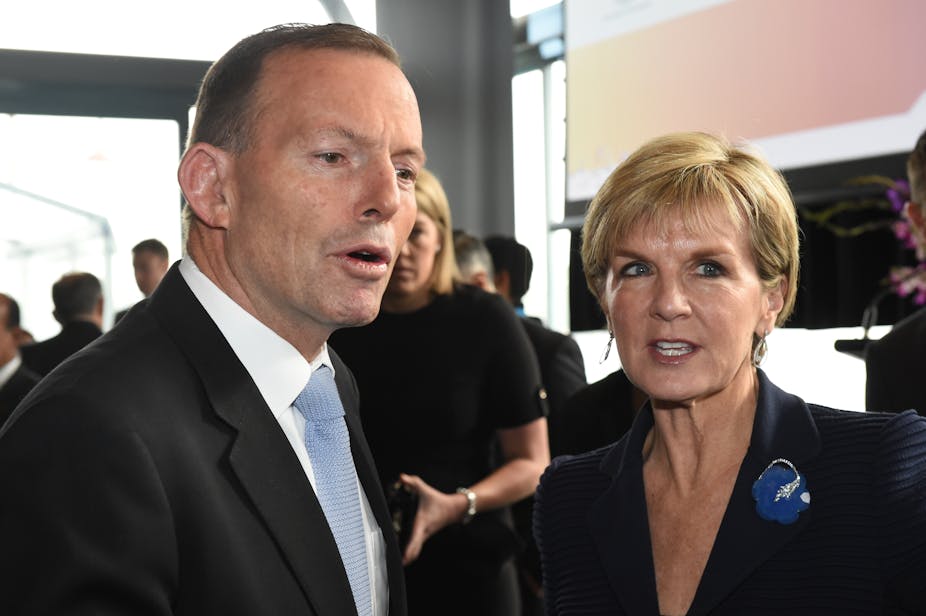With the possible exception of North Korea, there aren’t too many countries that don’t like to think of themselves as “good international citizens”. For states such as Australia, it’s ostensibly one of the defining features of being a self-respecting and effective “middle power”. But what does it actually mean in practice and is Australia currently making the grade?
At one level, the question is rather meaningless. As I’ve pointed out before, the idea of a so-called international community within which it’s possible for middle powers or anyone else to be effective and principled actors is generally a figment of the collective imagination of predominantly Western international actors.
The international community is at best an aspirational cliché, at worst a misleading description of something that has yet to be adequately defined, let alone realised.
Nevertheless, there can be few more agreeable ideas for the leaders of modestly credentialed states than that the countries they lead are at the forefront of international best practice when it comes to doing the right thing on the global stage. Even for an administration that has generally been highly sceptical about the merits of getting involved in unproductive international gabfests, the Abbott government has played a surprisingly prominent role in international affairs at times and even sung the praises of the G20 and the UN when it suited them to do so.
However, at present, consistency – much less principle – seems to be taking a back seat. The result is a predictably incoherent and opportunistic-looking foreign policy agenda that looks in part heartless, and, in part – to borrow a great Yorkshireism – gormless.
The mean-spirited part of the evolving agenda centres on Australia’s rather brutal decision to cut back further its already diminished foreign aid budget. Africa is predictably being hard hit as it is apparently not judged to be central to Australia’s interests, despite its recent prominence as a source of asylum seekers, illegal migrants and terrorist threats.
Asia has been less badly affected. But even here, the budget has been slashed by 40%.
Interestingly, some of the slack is being picked up by China, which is using its growing economic power to spread its political and perhaps even ideological influence. This is potentially especially significant in our immediate neighbourhood, where Australian policymakers have frequently liked to think of themselves as representing a Pacific superpower.
If such budget trimming were part of a general effort to radically reduce government spending across the board, perhaps it might be possible to support it – albeit grudgingly. But at the same time that Australia is depriving some of the most impoverished countries in the world of badly needed assistance, our government is ramping up spending on security and defence.
Is this the act of a good international citizen? No doubt the US will think so, because many of the government’s recent actions are designed to further reinforce its reputation as a reliable security partner. Whether hugely expensive defence procurements are actually the best means of ensuring “Australia’s” security – given the growing prominence of asymmetrical threats that often emerge from precisely the sorts of countries that are having their aid cut – is a moot point.
What we can say is that Australian policymakers are playing a high-profile role in supporting the US’s evolving response to the China challenge. It is costly both materially and in terms of Australia’s reputation and foreign policy options. It will have the effect of further complicating Australia’s relationship with China, despite the latter’s economic importance and that Australia can make no real difference to the outcome of the growing rivalry – much less any possible conflict – between the US and China.
What might a good international citizen do in such circumstances? It is not necessary to be entirely selfish or indifferent to the fate of the world. On the contrary, there are encouraging examples of states such as Norway and Sweden that have “punched above their weight” without needing to be part of alliances. The Scandinavians are also justly admired for the generosity of their foreign aid programs and the good opinion much of the world has of them as a consequence.
Should Australia aspire to be the Scandinavians of the southern hemisphere? There are worse fates. After all, a country like Australia can’t do everything with the best will in the world. But our choices define us and the way the world thinks about us.
We can make a modest but meaningful contribution to the domestic circumstances and security environments of some of our neighbours. That is no small achievement, and likely to be of greater long-term significance than a strategically meaningless, hugely costly conventional response to a security challenge that we cannot decisively influence no matter how much we spend.
It might also provide a useful model of what good international citizenship looks like in practice in a part of the world where it is sorely needed.

